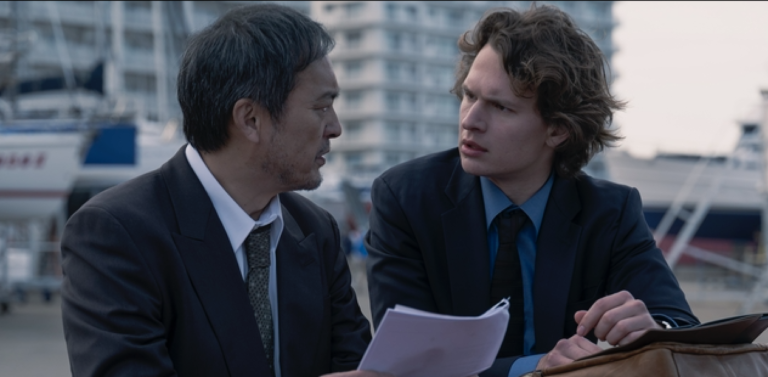
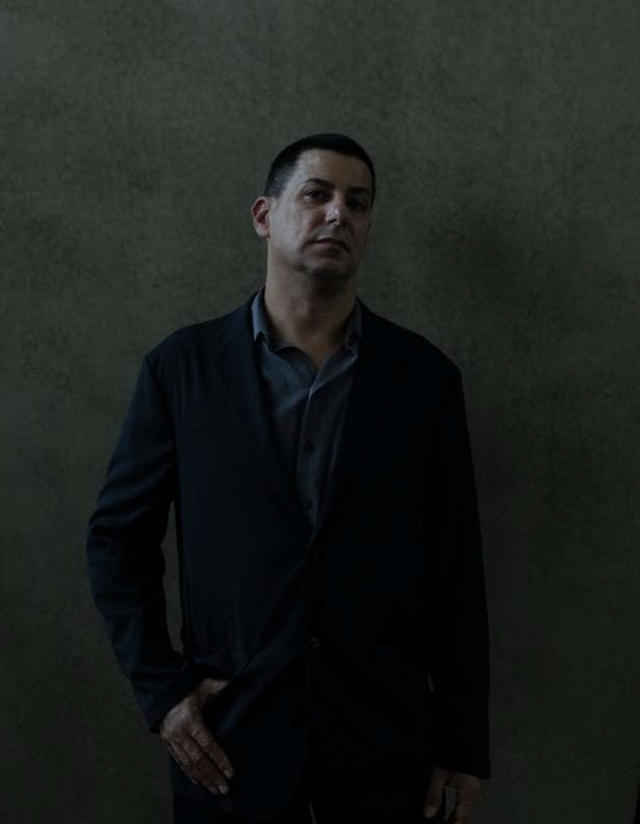
Q : You were initially born in Missouri, but how did you get interested in Japanese culture and go to Sophia University, which is Joichi Daigaku in Japan?
Jake Adelstein: First thing, in high school, I started doing karate. My Karate teacher had grown up in Okinawa and the class was very traditional. And he certainly put a lot of emphasis on the meditation before class, sort of the spiritual side of karate and the meaning of the terminology.
And I became very interested in the Japanese language and culture primarily from that, which I think that’s the gateway for many people—, even fundamental questions like “does karate mean empty hand in Japanese or does it mean China hand?, “ which is one explanation, right?
The original karate characters could mean “from China”, so is it like Kung Fu or is it ‘fighting empty handed’? Is there a more esoteric meaning to “kara”? And so that’s how I became really interested in Japan. I started reading up on the history of the country and Zen Buddhism. By the time I was in college, I started to take Japanese lessons. I was lucky to have this opportunity to go as an exchange student to Japan very early.
It was during the so-called bubble period. [An economic bubble (also called a speculative bubble or a financial bubble) is a period when current asset prices greatly exceed their intrinsic valuation.] So we had this exchange program, right, and I applied and they said you can’t go because you have to have two years of Japanese. I was on my lunch break and I said to them out of curiosity, “How many people do we have going from the University of Missouri to Japan next year?”
And they said, “We have no one because no one has applied.” and I said to them “It’s not much of an exchange program if you have 20 people coming from Sophia University and you have no one from our university going, so you should be happy that I am willing to go–you should let me go.” And they were like “Mr. Adelstein, you have a point.” So they let me go.
Q : Wow.
Jake Adelstein: I think there were only three of us who went. And within three or four months after living in Japan and living in what they call the gaijin house. (This is an inexpensive type of accommodation for foreigners who stay in Japan for one month or longer and who want to avoid the hassle and the expense of renting and furnishing a conventional apartment).
The gaijin house offers cheap rent usually for foreign students. I met a Zen Buddhist priest named Ryogen and I taught him English for a short time. He really wasn’t interested in learning, but he could see that I was interested in Japanese culture.
So he offered me a room in the temple. And so I moved there. I lived most of my college life in this little Zen Buddhist temple in Ikebukuro [one of Tokyo’s most prominent shopping and entertainment districts]. This was a great experience of total immersion because it was a very community centered temple with cooking lessons for people, yoga classes, and tea ceremony and all these things.
People were coming in and out all the time and they would have Zazen-Kai for the locals every Sunday, which I had to go to. That was part of the deal of being a college student. If I had a hangover or came home at four in the morning, I still had to go to Zazen [sitting meditation] on Sundays. (Zazen=It’s a meditative practice that’s meant to give insight into your true nature of being).
So I got a very good Japanese experience because I had to deal with people in the community as well as my landlord slash Zen master. So it was good.
Q : From being in Ikebukuro and learning about the Japanese culture, what motivated you to start working on the Yomiuri Shimbun, one of the biggest newspapers in Japan? And you were the first foreigner to work at the Yomiuri Shimbun, right?
Jake Adelstein: I was writing for the school newspaper in Japanese. I wasn’t very good, but it was good practice. And I saw that colleagues were getting ready for the mass media entrance exam, which is the standard test for Yomiuri and Asahi [two of the major newspaper companies in Japan] as well as Nippon TV.
And I thought I’ve got a year to go and I need to motivate myself to study Japanese harder. So I will focus on trying to pass these tests. I bought a couple of textbooks and I enrolled in a few classes.
I had the classes at the Asahi Bunka Center. [The Asahi Cultural Center offers a total of 37,000 courses per year in 11 locations nationwide as well as online and correspondence courses. Classes are in a variety of subjects including culture, literature, languages, arts, and hobbies.]
I had a couple textbooks, and I took a class in essay writing with Kyodo News. At the time these hiring exams were disguised as seminars because they’re actually hiring you before the official hiring season. The Yomiuri and the Asahi were at the same time, so you had to pick one or the other.
Q : Oh, I see.
Jake Adelstein: But I realized that the Yomiuri’s national news department and the paper itself were very conservative, but at the time the national news department, Shakaibu. was very liberal, so I was like okay, I’ll pick the Yomiuri because I really like what they’re writing in the Shakaibu pages. So I took the Yomiuri. I was very lucky in that the topic on the essay was Gai kokujin [The Foreigner].That’s an easy one for me to write about.
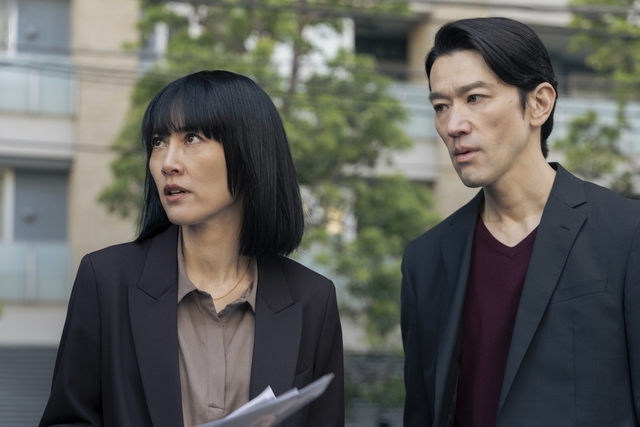 ©Courtesy of Max
©Courtesy of Max
Q : Of course, yeah.
Jake Adelstein: I’d written about it before. I had an idea in my head. It was very easy to write that one. And I did well enough to go through the interviews and when they offered me a job, I was thinking that’s ten times more interesting than working for Sony.
So I said, yes. And then I politely told Sony, “I’m sorry, I’m not going to work for you.” I had to apologize to my senpai who made the introductions. [Senpai=This is an upperclassman who mentors an underclassman, or kohai. This term is used most often in English in reference to anime and manga and originates from Japanese 先輩、earlier colleague”. The term is used more broadly to mean “teacher” or “master.”]. I was like, okay. And the irony of that actually is that I worked for Sony in 2022 and 2023. I’m still working for Sony Music right now.
So I did a podcast called “The Evaporated,” which won best podcast in Asia. I’d never won an award for my journalism before. So that’s the first time. So that was great but there’s an irony, that you reject the job and then years later you end up working there.
It’s nice working for them. As a matter of fact, before I talked to you, I was talking with some people at Sony about the next podcast we’re working on. So that’s your answer. I was curious. I didn’t actually think that I’d get hired but I needed to challenge myself. And I did prepare for the exams, but I didn’t think they would ever hire a foreigner.
And when they did, I was very delighted. The idea of the HR [people] at the time was that I should have the same experience as everyone else. And since everyone starts on the police beat, they were going to put me in the Saitama office for a year, and then bring me up and have me do international reporting. I did so well on the police beat that they decided to keep me there, which was a surprise to me.
And if you know the Yomiuri. When it says ‘Hey, you’re doing such a great job, we’re going to keep you on the police beat. you don’t say “hey, you promised me the international section. After years have passed, you’re just like, “Oh, thank you for recognizing my work.”
Q : So when you were at the Yomiuri Shimbun, you have been covering and investigating Japanese organized crime for almost like 12 years. I assume that it’s in between there. Because I believe that you are also working on other incidents or other cases, not just covering Japanese organized crime organizations. I’m curious to know, how did you coordinate with other journalists who were at Yomiuri. Take us through the system of how the Yomiuri Shimbun worked on covering organized crime investigations back then.
Jake Adelstein: So I spent the first year on the police beat under the Kenkei Honbu[The headquarters organization that oversees and directs the prefectural police departments. It is the equivalent of the Tokyo Metropolitan Police Department’s Metropolitan Police Headquarters], right? So the police reporters had the people who were in the Saitama Kenkei covering the Honbu, like the headquarters. Then you had the people who were covering what would be the equivalent of homen-mawari under the TMPD, Urawa Nishi, Ōmiya, Kawaguchi, and I ended up with a huge amount of police stations to cover because one of my colleagues quit.
Actually, he’s a professor now at a university in Kyoto—Naoki Tsuji, he writes novels. We’re still good friends. But he quit the Yomiuri after a couple months in. Then I inherited his entire police beat. So I had Urawa Nishi, Omiya, Kawaguchi. Kawaguchi is just a horrible place to have to take responsibility for, because there’s always something happening there.
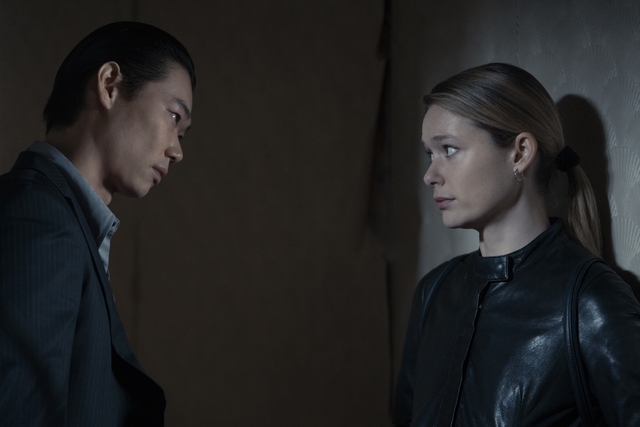 ©Courtesy of Max
©Courtesy of Max
Q : Oh, I see.
Jake Adelstein: In year two, 1994, my boss Yamamoto-san said “okay, you’re going to be covering organized crime.” So at the time it was Boryokudan Taisaku 1, 2 [Countermeasures against organized crime) Organized crime countermeasures in Division 1 [involved] collecting information and handling the Boryokudan Taisaku Hou [Anti-Organazied Crime Law]. And Boryokudan Taisaku 2 was more about arresting the yakuza for various crimes that they were involved in.
I had both of those divisions, and that was my job as a police reporter, to cover anything that had to do with them. And I actually began to develop some sources within the yakuza, which is very useful, because I think most reporters in Japan who cover organized crime never have direct interaction with the yakuza. They just deal with police. So, I dealt with both.
Even when I got sent to Omiya, which was like maybe four years into it, I covered the Omiya local politics, but I also was still covering the organized crime unit because I was really good at it. I had a brief period of time doing prefectural politics, when there were a couple of scandals involving politicians and yakuza and savings and loan issues.
So I’m back doing the same thing again. In 1999 I covered Kabuki-cho–and we all know who runs Kabuki Cho. Then from 2000 to 2002, I was working in the multimedia section, covering Yahoo News and internet sites. And then there was a liquid audio case, which was the yakuza taking over an IT company listed on the “mother’s market” [It is listed on the TSE Mothers and the number of affiliated media is about 400,000, which is the top 5 leading ASP in Japan.], so suddenly I was covering crime and the yakuza again.
And then from 2003 to the time I left the newspaper, I was on the police beat with the TMPD (Tokyo Metropolitan Police Department). Even though I had times that I was supposedly covering other things, anytime there was some sort of yakuza related thing in my area, that became what I wrote about again.
It happened because they’re involved in all facets of life. I’m writing about it and stuff, because we made a transition from the Shakaibu [Local news section; the city desk] and other sections form this little Shuzai han [group of journalists]. But as soon as the Liquid Audio case came up, it was like, okay, you are covering yakuza involvement with IT.
Q : I see. Once you start investigating, you need to dig in and get closer to the police force. How do you gain this trust with the police force? What kind of approach did you use?
Jake Adelstein: With the [TokyoVice] TV series character Katagiri, who is based on this detective named Sekiguchi-san on the Saitama police force. And that part of the TV series is completely accurate. I kept going to his house. The wife could tell me he wasn’t home. And one day I showed up with some ice cream.
And she said he’s not home because he had little girls and I said, look this ice cream is going to melt, so please eat it because otherwise it’s a waste. I’m going to go home and then he called me and he said, look, come on in. He’s like. “Is this how you get in good with the police with ice cream?” And I said I’m not that smart, but if it works, sure.
Q : Yeah that’s a great way to approach the police forces. I never actually heard those kind of things, but it’s a really smart idea to approach in that way and close with the police department.
Jake Adelstein: At first, I don’t know anything. I have nothing to offer them other than entertainment value. You realize very quickly okay, this cop really likes booze, right? This cop likes wine. I’ll go pick up an Australian wine. I’ll ask someone who knows something about wine., “what’s a good wine that is underrated?” There’s one cop on the task force who really loved wine. I asked around–by that time I had a friend at the Australian embassy and they’re like, “Oh get them, bring them New Zealand wine. New Zealand wine is really great. If he really understands wine, he’ll appreciate it.”
As I got better at my job, I was able to say I have some information that may be valuable to you in starting a new investigation or the investigation you’re working on, And then you have something to deal with: basically the deal is, if you provide the information that is good enough that the cops can open a case, they’re successful, then the understanding is that you’ll get a heads up before anyone else.
There was one case with these so-called telephone clubs. Basically clubs where guys would go in and wait for a woman to call them. and usually she was a prostitute or something. There was a chain of them. And I realized that one of them had been robbed in Omiya and there was another similar robbery in Tokyo. So I managed to collect a whole bunch of different newspaper articles in a time when it was very hard to do database searches.
And I went all the way up to Tokyo and got a Nigaoe [mugshot], like a drawing of what that criminal looked like. And I would ask the police what did he say when he left? What did he tell the employees? He always used the same line. So I took that to the Omiya police. And I said, ‘Hey, this guy who committed this robbery at this telephone club has done the same at other telephone clubs. I’ve charted it on a chart here and this is what he looks like. And they were like, that’s really good work. And so when they did catch him, they called me up. And they said, look. we’ve arrested this guy
They told me we’re going to give you a few minutes before everyone else because you did really good work, like we wouldn’t have been looking for him if it hadn’t been for you putting this together. And so that was my reward. I provided good intel and they gave me a little bitty scoop.
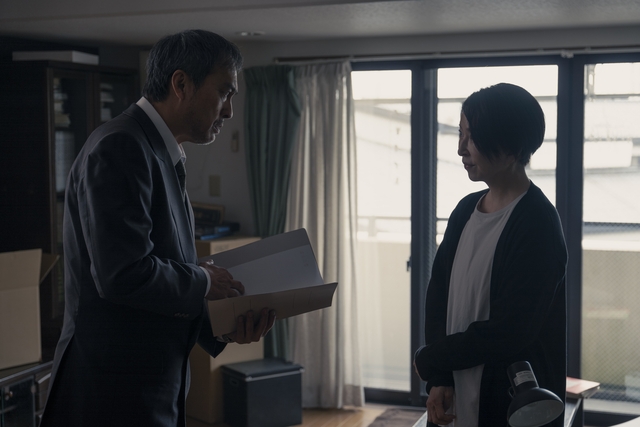
©Courtesy of Max
Q : Oh, I see. That’s a really great way to actually approach the police force. I was really fascinated how you did that. Let’s get into the Tokyo Vice series right now. You wrote Tokyo Vice: An American Reporter on the Police Beat in Japan. How did the production team, Michael Mann and the team of the production, approach you to make a TV series? And I heard that they initially attached actor Daniel Radcliffe, from Harry Potter, to play Jake. So I’m curious how did it start, and how did they change actors?
Jake Adelstein: Let me walk you through this. So the book came out first it was John Lecher who used to be the head of Paramount Productions.
Q : Yes.
Jake Adelstein: He saw my book. He really wanted to make something with it. We went through a couple screenplays. and they were pretty horrible. And then I was like, look, my high school friend, J. T. Rogers is a playwright in New York. He writes very good historical dramas, usually set in foreign countries. And I would like him to be on board as the screenplay writer.
Q : Wow.
Jake Adelstein: Wow. Yeah. And I was like, look we went to high school together. I’ve seen his plays. He’s really good. He’s got some critical reviews, which have been great. I would like him to be the screenwriter. John Lesher said okay. Daniel Radcliffe was really interested in it. We had a working script. At one point even Ryan Gosling wanted to do it.
Q : Really? I didn’t know that Ryan Gosling was interested.
Jake Adelstein: So, Ryan Gosling who’s a huge actor, wanted to do a version of it. Daniel Radcliffe was on board, but the mistake that was made was partnering with the Japanese production company, which for many reasons got cold feet at the last minute. They pulled out without their financial support, and the whole deal fell apart.
I had warned the production company, do not partner with this particular Japanese studio, because they will leave you at the marriage altar. Exactly as I predicted, it happened. But then 2017 comes along and JT wins the Tony for this play Oslo. And if you look at the Daily Beast, I wrote an article about how great this play was and I was like, I know IT, like we went to school together.
I think I wrote it before it won an award. I’m not sure. Maybe after. Anyway, suddenly he had a lot of gravitas and Hollywood people asked him, “JT, what do you want to do next?” So, JT, I think he got the Tony Award in 2017. You win the Tony Award, you have a certain amount of gravitas. Usually they don’t give a shit about Broadway. And so people are asking, what do you want to do next?
He said “I want to make it for the Tokyo Vice series.” JT had already known Ken Watanabe because he did a lot of plays in London. He convinced Ken Watanabe to come on board and Ken Watanabe loved the book, I think, and he loved the script. He loved the idea of this character.
And there were two actors that they were looking at. One was, I forget his last name, this guy named Dylan [O’Brien] who was in the Maze Runner. And then there was Ansel, and people weren’t very gung ho on Ansel, because they were like ‘this is a part that requires acting chops, can Ansel do this? Can he learn Japanese?’ But he was really enthusiastic and he followed JT to New York and had lunch with him and tried to make a case.
And I don’t have a lot of say on the production of this, but I was asked my opinion. And I said, look, if Ansel is enthusiastic, and if he really wants to do this, then we should pick him. Because enthusiasm counts more than star power. Because he’ll stick with it.
Q : So that was even before he actually joined the cast to make West Side Story.
Jake Adelstein: Yeah, he was already in early development. And then we got Ansel on board. and Ken Watanabe’s on board. And I don’t know who else they’d lined up. So they went out to Hollywood to pitch it. And I know that Ansel went with JT, So I think people felt that the author is in Hollywood, the author is always a problem in that he’ll object to the fictionalization of his life story or whatever, and it’d be a pain in the ass. I didn’t go. And so HBO loved it. And they were like, we’re not going to do a pilot, we’re going to do a series.
Q : Oh, I see.
Jake Adelstein: That was the progression of that. Really the ball got running on the TV series in 2017. And I think by 2018 or 2019, They will go and pitch it to the studios. HBO said yes. And then we ran into COVID, and so the series didn’t air until 2022, and then part two didn’t air until 2024. Even though they could have aired it a lot earlier, it’s been quite, quite a trip.
And also, one thing that I think we should mention is that I am not a writer on the show, but the whole grand arc of the series, and when we finally got approval and we were starting to correct the story bible and stuff. J.T. has this lovely house outside of New York, in the suburbs, and we went to his office and we spent days hatching out the whole arc from season one to season two.
And from the very beginning we were like, we could do season three, but we’re gonna end season two. By the time we get to season two, there will be enough of an ending. So that if there isn’t a season three, people don’t feel cheated. We are going to bring this to a complete arc. From the very first scene that you see in “Tokyo Allies,” we’d always planned to come back to that scene and continue the story till the end.
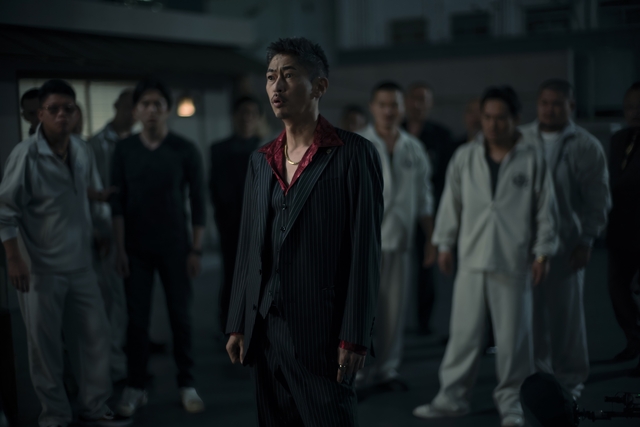
©Courtesy of Max
Q : I’m curious to know during the process of investigative research, what kind of threats were you receiving from organized crime back then? Did you get a witness protection type of protection from the police?
Jake Adelstein: As I was writing the book it leaked out that I was going to write about Tadamasa Goto’s liver transplant in 2008. The Goto clan detected that Jake tried to expose the FBI dealings of the Yamaguchigumi-affiliated Goto clan leader Tadamasa Goto on the occasion of his liver transplant surgery in the U.S. So, The National Police Agency was aware that there was a contract or the equivalent of it in my life.
And so I was under police protection, heavy police protection for a couple of months. Then my article in the Washington Post came out and an article in the LA Times that I co-wrote. And then I stayed under police protection for five years, as Keisatsu Hogo Taishosha (a person subject to police protection).
Q : Right.
Jake Adelstein: Keisatsu Hougo Taisho also means that the police constantly monitor you, how you are and check in on you regularly. I have to tell them when I’m leaving the country, or when I’m even leaving Tokyo to go somewhere else so they can keep tabs on me. And it was nice, the police did a really great job.Nobuhiro Hosoki: Tokyo Vice got cancelled after two seasons, but basically said that you guys only intended to actually write two seasons. But if you were actually to write another season, what kind of story did you have in mind, or even shared with JT?
I think there’s actually a decent possibility of a season three, so I don’t want to get ahead of myself. But I’ll tell you this, it will start a few years later. I think that one of the storylines you’d want to pursue is Sato trying to make his organization legitimate, like becoming a legitimate businessman, because the character is smart enough to see what the future will bring. And the future is not good. And, I’ve written a second book called The Last Yakuza. And in that book, there’s a long description of a guy named Inoue Takahiko. They used to jokingly call him the Buddha because he was a yakuza boss and also a Zen Buddhist priest.
Q : Oh, I see.
Jake Adelstein: He really tried to make his organization legitimate. Before he died mysteriously, he was really moving into legitimate businesses like construction, and real estate, and trying to encourage his underlings to live legitimate lives like you’re going to have a real job. You’re not just going to be a yakuza. You’re going to have a real job; sooner or later the yakuza are going to be outlawed. We need to look ahead and so I think that would be part of the storyline of season three Of course, there’ll be some big story that they’re all pursuing, but also there would be a story of how Asato is trying to make his organization legitimate.
There’s a lot of material to draw upon, and there are people that have tried to do that before. Anyone in 2003, 2004 who had a really good sense of what the future would be could already see the end is coming so need to get out of this business.
Q : That’s a great story. I’m curious to know is producer Alan Poul or creator J.T. Rogers actually getting in touch with other networks or other channels at this point?
Jake Adelstein: All I can say is that people are getting in touch with them.
Q : I got the feeling that you’d get picked up by a network or even a cable channel. So that was my last question, thank you so much for your time, Jake-san. I really appreciate it.
Jake Adelstein: Yeah, I know that you guys are a small group and you’re ganbatteiru [doing your best, and I see that you’ve got an interesting little staff. Good luck with that project, man.
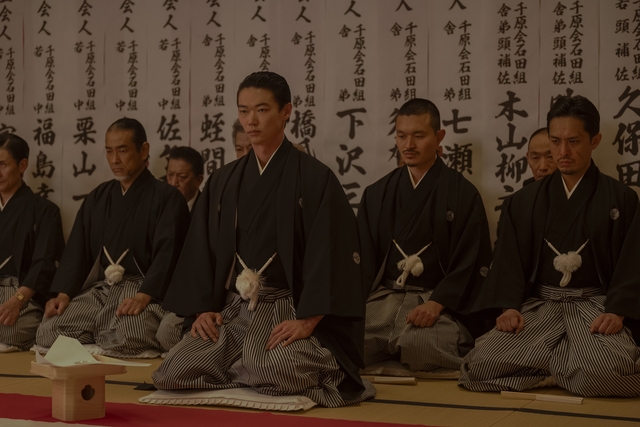
©Courtesy of Max
If you like the article, share your thoughts below.
Check out more of Nobuhiro Hosoki.
Here’s the trailer of the second season.

